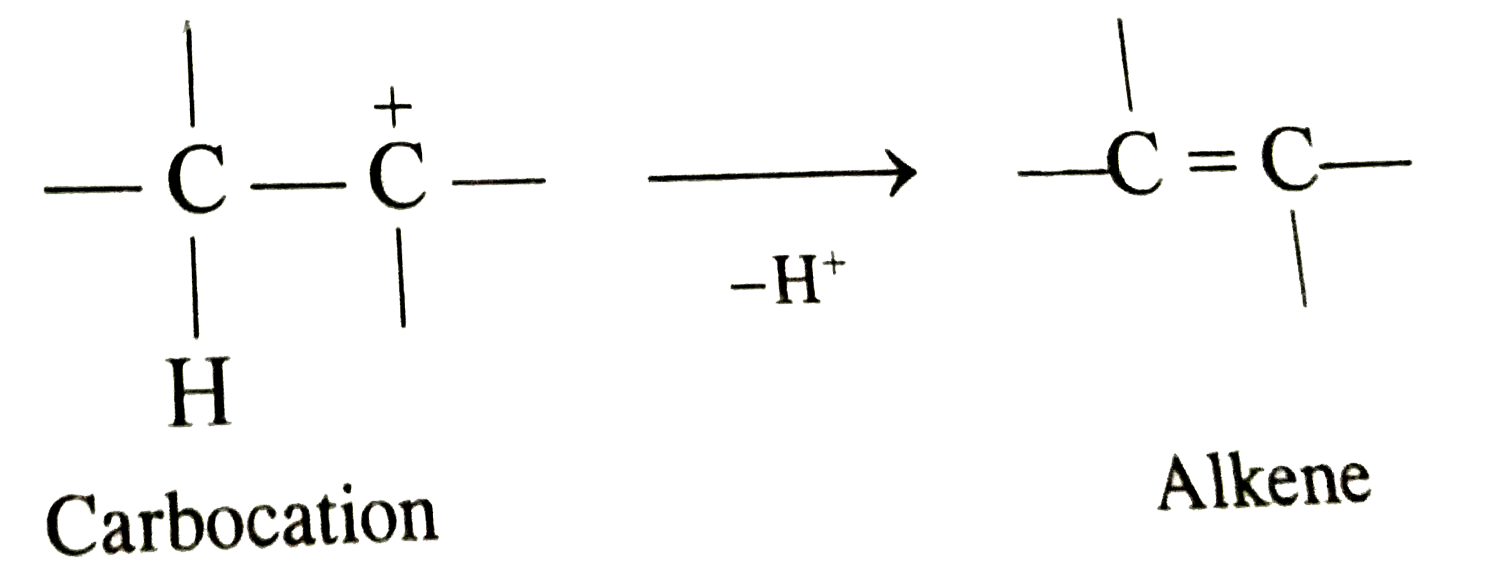An alkene is formed from a carbocation by
Elimination of H+ ion
Elimination of H− ion
Addition of H− ion
Addition of H− ion.
The correct Answer is:A
Topper's Solved these Questions
Similar Questions
Knowledge Check
Alkene can be formed from carbonium ion by
ACombination of protonBElimination of hydride ionCElimination of protonDFirst combination of H then removal of HCarbocation are
AArrhenius acidsBBronsted acidsCLowry acidsDLewis acidsThe mechanism of the reaction (acid catalysed hydration of alkene) involves the following three steps.
I. Nucleophilic attack of water on carbocatin.
II. Protonation of an alkene to form carbocation by the electrophilic attack of H3O+.
III. Deprotonation to form an alcohol.
Identify the sequence for the acid catalysed hydration of alkenes.AI, II and IIIBII, I and IIICII, I and IIDIII, II and I
The mechanism of the reaction (acid catalysed hydration of alkene) involves the following three steps.
I. Nucleophilic attack of water on carbocatin.
II. Protonation of an alkene to form carbocation by the electrophilic attack of H3O+.
III. Deprotonation to form an alcohol.
Identify the sequence for the acid catalysed hydration of alkenes.
View SolutionHow many alkenes are formed from the reaction of 2-bro-mobutane and alc. KOH ?
View SolutionWhich of the following is characteristic of a carbocation?
(i) It can rearrange to a more stable carbocation
(ii)It can eliminate a hydride ion to form an alkene.
(iii) It can add to an alkene to form a new carbocation.
(iv) It can abstract a hydride ion from an alkane.
View SolutionMechanism of acid catalysed hydration reaction involves
(i) Protonation of alkene to form carbocation by electrophilic attack of H3O+
(ii) Nucleophilic attack of water on carbocation.
(iii) Deprotonation to fonn alcohol.
View SolutionAlkene is prepared from alcohol by
View Solution
